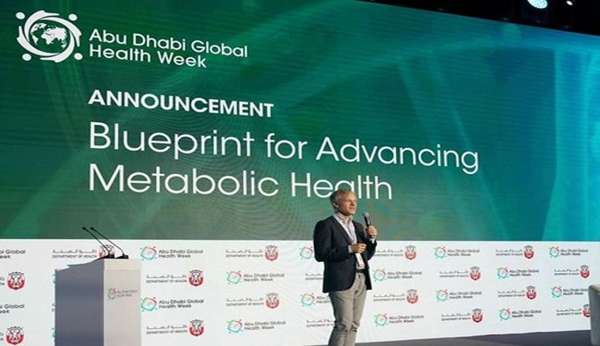
Abu Dhabi: The Abu Dhabi Public Health Centre (ADPHC) and the McKinsey Health Institute of McKinsey & Co. presented a study at Abu Dhabi Global Health Week (ADGHW) that examined the success factors and lessons learned while putting metabolic health programs into place in Abu Dhabi.

In addition to providing a path for the global health community to tackle these interrelated issues at scale, the paper gives a data-driven examination of adult metabolic health and intervention techniques. Among its observations are the prevalence of obesity worldwide and Abu Dhabi’s strategy for improving metabolic health: Over 40% of people in certain high-income nations, including the US, suffer from obesity, and the number is rapidly increasing in low- and middle-income countries.
It is intricately linked to many other parameters, and focusing just on weight runs the danger of ignoring intricately linked causes. The white paper offers insights into the all-encompassing strategy that the Emirate pioneered to promote metabolic health, and Abu Dhabi aims to become the worldwide reference example for addressing metabolic health at scale.
The argument for enhancing metabolic health as opposed to just avoiding obesity The study looks at a more comprehensive and systemic strategy for improving metabolic health across a range of metrics. Compared to focusing just on obesity, adopting an all-encompassing strategy may result in 3.5 times more years of healthy living. Additionally, by 2050, it may result in a multi-trillion-dollar increase in GDP.
The guide to creating a metabolic health plan: Setting an ambitious goal and creating a thorough intervention program are necessary to have a significant population-level effect. The study examines effective case studies and outlines the critical success criteria for implementing interventions, such as good role modeling, cross-sector cooperation, and local leadership and sustained commitment.
ADPHC Director-General Dr. Rashed Alsuwaidi stated, “This is a wake-up call for the world, not just a white paper. Abu Dhabi is spearheading a new age in preventative health, not only reacting to a catastrophe. We are laying a strong basis for healthy communities globally by using data-driven insights and encouraging cross-sector cooperation.
“The McKinsey Health Institute (MHI) has the mission to catalyze the actions needed across continents, sectors, and communities to unlock the potential of adding as much as 45 billion extra years of higher-quality life over the next decade,” stated Dr. Panco Georgiev, Senior Partner at McKinsey & Company. To realize this potential, metabolic health must be improved. We are thrilled to see Abu Dhabi leading the way in developing a scalable paradigm to guide global health initiatives, and this white paper provides concrete, scalable answers.”
The document offers governments and health systems a useful manual by combining clinical leadership, technology, and policy. Given that more than 1 billion individuals worldwide suffer from metabolic problems, it provides a model that may be replicated internationally. By encouraging cooperation and innovation in one of the most pressing health issues of our day, Abu Dhabi hopes to serve as a case study of international health best practices.